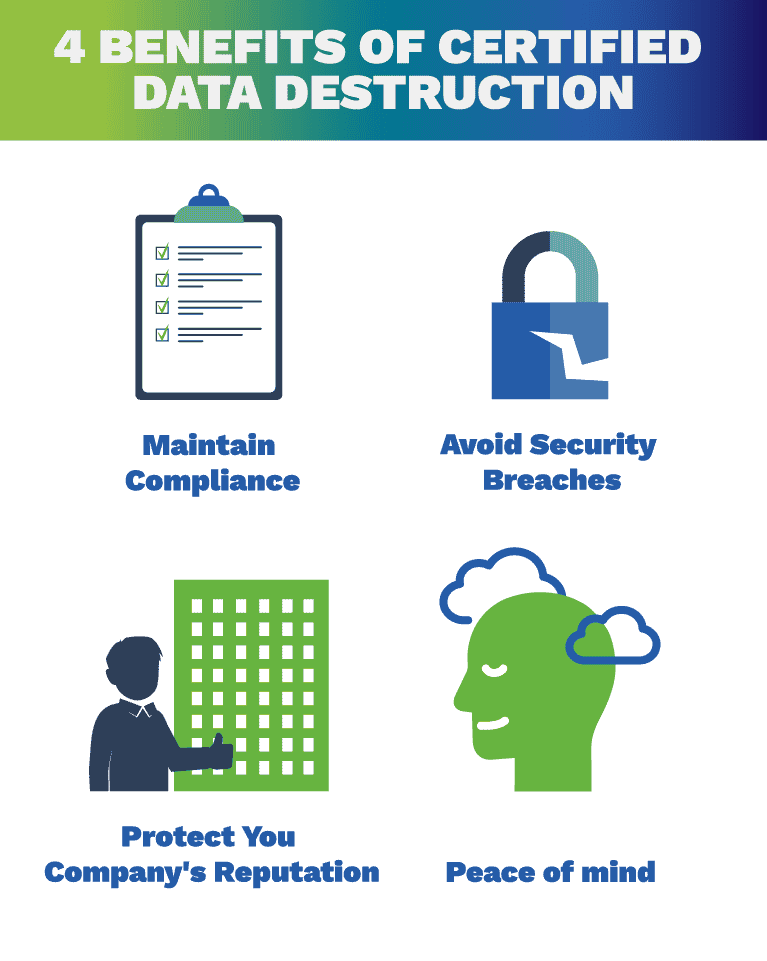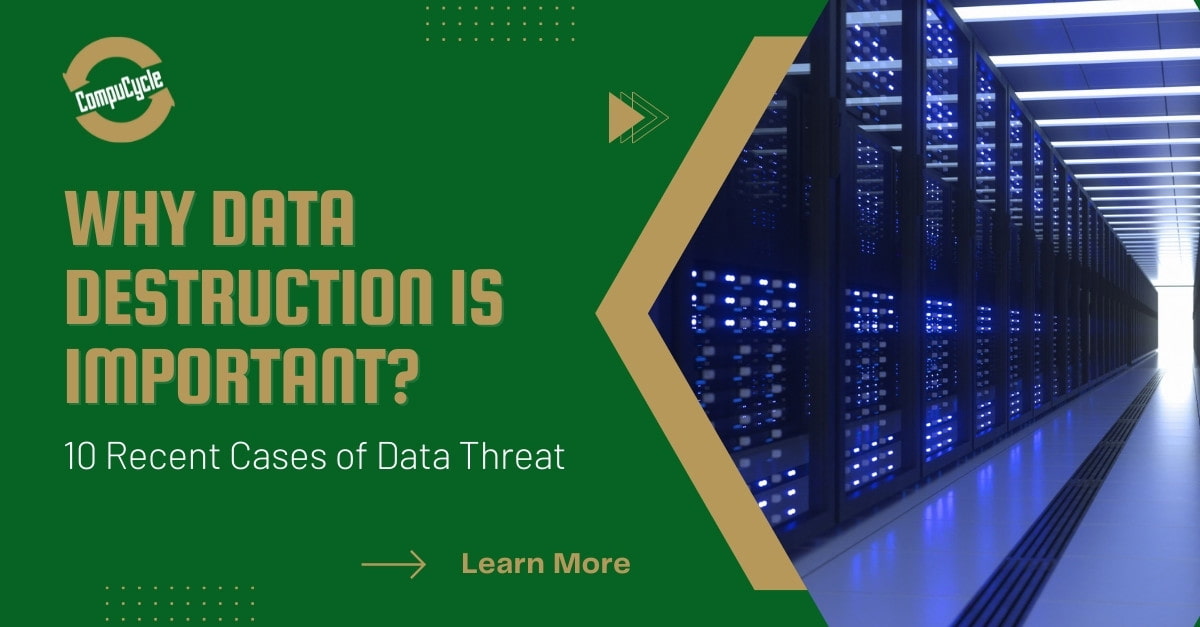The Influence of Effective Data Destruction on Cyber Security Danger Management
The Influence of Effective Data Destruction on Cyber Security Danger Management
Blog Article
The Value of Effective Information Destruction Practices in Safeguarding Sensitive Info and Ensuring Computer Security
In a period where data breaches are significantly typical, the importance of reliable information damage techniques can not be overstated. Executing robust data damage methods not just reduces these risks however also straightens with legal conformity demands, ensuring that companies support their online reputation and foster client trust.
Comprehending Data Damage
Understanding data devastation is essential in today's digital landscape, where delicate details can easily be jeopardized. Reliable data destruction involves not merely guaranteeing but deleting documents that information is irretrievable with extensive approaches. This procedure is vital for organizations that handle confidential customer details, intellectual property, or inner files, as any type of breach can result in severe financial and reputational consequences.
Information devastation encompasses different methods, including shredding physical media, degaussing magnetic storage space devices, and utilizing software-based options that overwrite data multiple times. Each approach offers a particular objective and needs to align with the level of sensitivity of the details being dealt with. For instance, physical devastation is frequently liked for hard disks containing very private information, while software application methods might be sufficient for less delicate details.
Moreover, sticking to sector criteria and guidelines, such as the General Data Protection Law (GDPR) or the Wellness Insurance Coverage Mobility and Accountability Act (HIPAA), is vital for compliance and to alleviate lawful dangers. Organizations has to establish a robust information devastation plan, train employees on finest practices, and on a regular basis investigate their procedures to make certain that all sensitive details is thrown away securely and successfully.
Threats of Inadequate Practices
Poor data destruction practices subject companies to substantial threats that can have far-reaching repercussions. When delicate info is not appropriately disposed of, it continues to be at risk to unapproved accessibility, which can bring about data violations and identity theft. Such cases not only jeopardize the safety of individuals however additionally tarnish the organization's track record, resulting in a loss of customer trust and possible monetary repercussions.
In addition, regulatory conformity is progressively rigid in several sectors. Failing to comply with information devastation policies can result in significant penalties and legal actions against companies. These penalties can stress monetary resources and draw away focus from core company operations.
Furthermore, the misuse of recurring data can lead to copyright theft or corporate espionage, endangering competitive advantages (data destruction). The influence of insufficient data damage extends beyond immediate financial losses; it can also cause lasting damages to brand name stability and market position

Organizations must identify that information safety is not entirely regarding stopping breaches; it also includes the responsible management of data throughout its lifecycle. Overlooking effective information damage methods can have devastating effects, emphasizing the necessity for durable procedures to minimize these threats.
Finest Practices for Data Devastation
Carrying out reliable information devastation techniques is necessary for protecting delicate info and keeping compliance with regulatory standards. Organizations must adopt a multi-faceted method to make sure that data is irretrievable, thus avoiding unauthorized gain access to and possible breaches.
First, information need to be classified based upon sensitivity, permitting organizations to apply ideal devastation techniques tailored to the level of risk. For electronic data, making use of software-based data-wiping devices that abide by market standards can efficiently overwrite existing information. Physical devastation techniques, such as shredding or degaussing, are important for devices that store sensitive details, Discover More making certain total eradication.
Developing a clear information retention plan is important, detailing just how long various types of information should be preserved prior to damage. Routine audits of information storage space systems are likewise essential to recognize unneeded or obsolete data needing elimination.
In addition, training workers on the importance of information destruction and the particular procedures to follow fosters a society of protection within the company. Maintaining documentation of data devastation processes offers accountability and sustains compliance with inner plans and exterior policies. By sticking to these ideal practices, companies can considerably alleviate the dangers related to information exposure.
Legal and Compliance Considerations

Failure to abide by these laws can result in severe penalties, consisting of substantial penalties and reputational damage. Organizations should execute a robust data devastation plan that aligns with these legal frameworks and supplies clear standards on the correct approaches of information disposal, whether physical shredding or electronic wiping.
Moreover, maintaining documentation of data devastation activities is important for demonstrating compliance during audits or evaluations. By prioritizing lawful and compliance factors to consider, companies can boost their data protection pose and foster trust fund with stakeholders and clients, ultimately adding to an extra safe information administration environment.
Advantages of Effective Information Destruction
Effective information damage methods extend beyond mere compliance; they YOURURL.com provide significant benefits to companies that prioritize them. By guaranteeing that sensitive information is irretrievably ruined, organizations alleviate the risk of data violations and the potential economic effects related to them. This positive approach not just safeguards versus unapproved access yet also enhances the total credibility of the company in the eyes of clients and stakeholders.
Applying durable data devastation techniques, such as physical devastation of storage space devices or advanced information wiping techniques, contributes to the conditioning of a company's cybersecurity stance. data destruction. It minimizes the likelihood of copyright burglary and secures exclusive details, thus preserving an one-upmanship in the marketplace

Final Thought
In final thought, efficient information damage practices are essential for guarding sensitive details and improving overall computer system safety and security. Ultimately, a dedication to robust information damage strategies fosters a society of duty, thus reinforcing an organization's cybersecurity posture and keeping client depend on.

Report this page